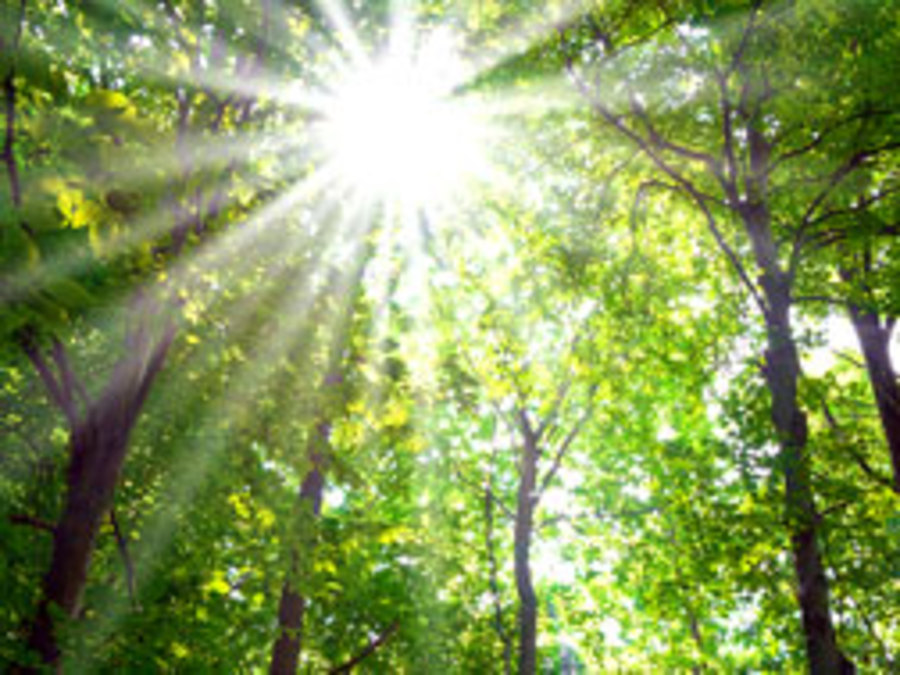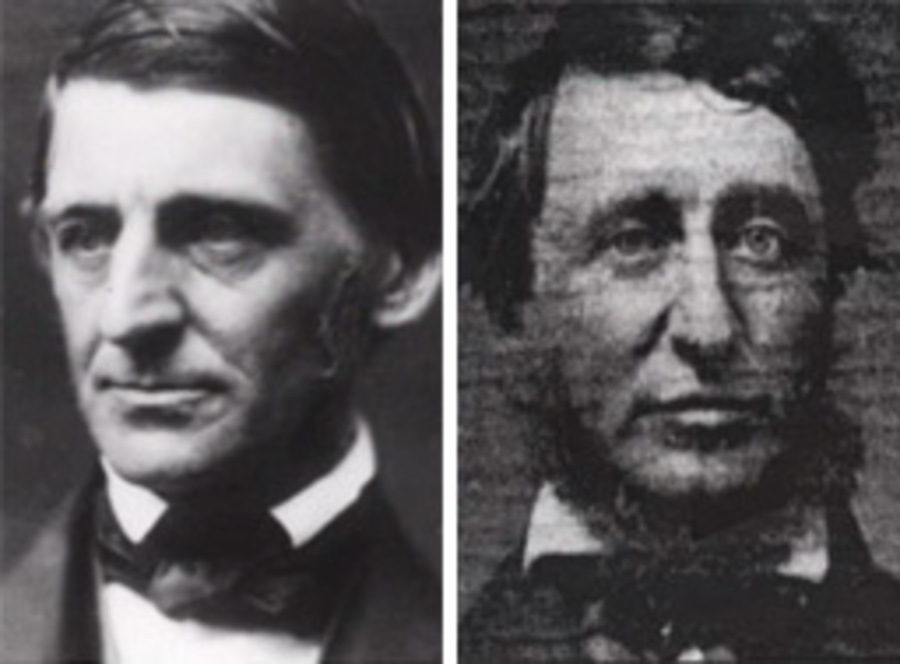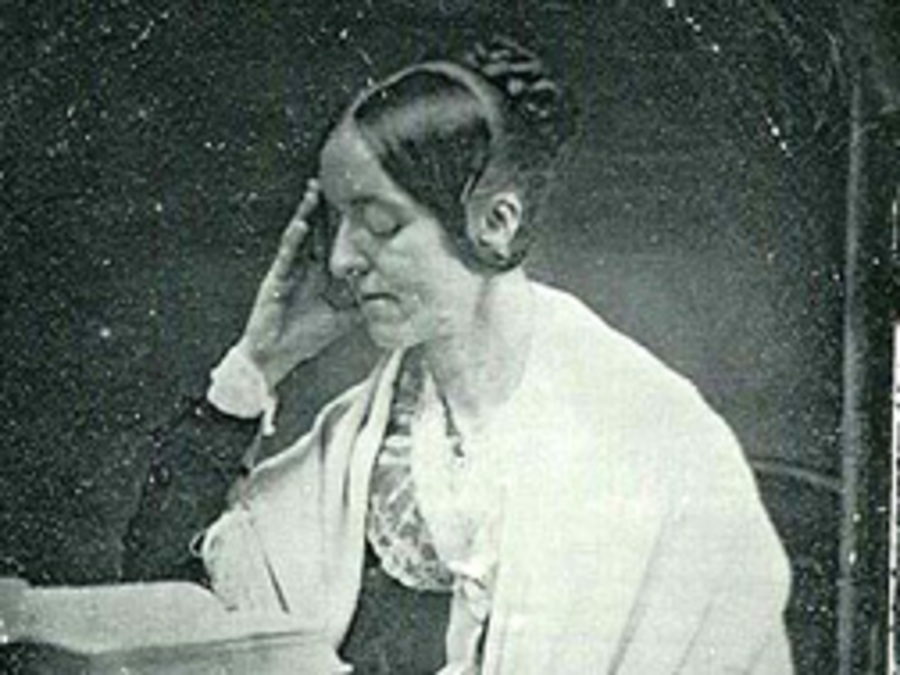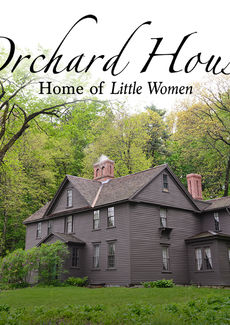 Try these videos to get started. Must be on campus or login with your COM account for off campus access.
Try these videos to get started. Must be on campus or login with your COM account for off campus access.
Want more on finding media? Try Articles & Media.
-
The American Transcendentalists: Concord, Massachusetts (54:00)
The ideas and ideals of three American Transcendentalists—Ralph Waldo Emerson, Henry David Thoreau, and Margaret Fuller—initially given expression through The Dial continue to shape the discourse of literature, philosophy, and religion worldwide. This program, hosted by James H. Bride II and divided into eight chapters, traces the origins and defines the concept of Transcendentalism. It also spotlights key landmarks in and around Concord, where the Transcendental movement began, while profiling Emerson, Thoreau, and Fuller in depth through readings, interviews, and dramatizations from significant Transcendentalist texts. Scholarly commentary is provided by Richard Baker, Lawrence Buell, Burnham Carter, Philip McFarland, Joan von Mehren, Joel Myerson, Wesley Mott, Robert Richardson Jr., and David Reynolds. Several dramatic passages are reenacted by Jeffrey Hyatt as Thoreau at Walden Pond. Some audio segments are slightly substandard due to limitations at the time of recording. (54 minutes)
-
Introducing the Transcendentalists (49:53)
In this new release, host James H. Bride brings the language and lives of the Transcendentalists to realization by recognizing the context, expression, and foundation of the movement. This program pioneers a new way for teachers and general readers to be on familiar terms with Ralph Waldo Emerson’s essays, as well as the journals and writings of Henry David Thoreau. Professors Richard Baker, Joel Myerson, Bob Richardson, Wes Mott, and Larry Buell add significant biographical commentary and teaching suggestions to introduce this body of American philosophy and literature. Still important in the curriculum for studying the development of 19th-century American ideas, Introducing the Transcendentalists reflects today’s 21st-century individual and philosophical challenges and associations. Additionally, historian and actor Richard Smith offers a reenactment of a day in Thoreau’s life at Walden Pond. A separate documentary, In The Footsteps of Henry David Thoreau, mirrors the challenges and isolation in his 19th-century Walden Pond experiment. (50 minutes)
-
The Margaret Fuller Legacy: America's First Feminist, 1810–1850 (40:01)
In Margaret Fuller’s Memoirs she wrote, “I remember how, as a little child, I had stopped myself one day on the stairs, and asked ‘How came I here? How is it that I seem to be this Margaret Fuller? What does it mean? What shall I do about it?’” During her brief life of 40 years, Fuller made every effort to answer those questions, supported and documented by her inquiring nature and writings, all to fulfill American women’s growing intellectual and spiritual needs. In this program hosted by James H. Bride, distinguished educators Megan Marshall (author of the 2014 Pulitzer Prize-winning biography, Margaret Fuller: A New American Life), Joan Von Mehren, Peter McFarland, and Joel Myerson contribute to the first comprehensive overview of Margaret Fuller’s life, times, and achievements. The Margaret Fuller Legacy examines her Transcendental period as editor of the first literary magazine in America, The Dial, along with her professional and personal relationships with Ralph Waldo Emerson and Henry David Thoreau. Additionally, the video brings to light her Conversations—the first successful women’s studies initiative in America—in Boston and at Brook Farm and her role as the first American female journalist and foreign reporter with the New-York Tribune. The program concludes at the Fuller monument at Mount Auburn Cemetery, Cambridge, Massachusetts. (40 minutes)
-
Orchard House: Home of Little Women - (26:56)
Go inside the 350-year-old home in Concord, Massachusetts where Louisa May Alcott wrote and set Little Women in 1868. With a nurturing, talented family as owners and literary giants Ralph Waldo Emerson, Henry David Thoreau, and Nathaniel Hawthorne as neighbors, Orchard House uniquely inspired Louisa May Alcott to write a book that has never been out of print and has been translated into over 50 languages.
![]() Try these videos to get started. Must be on campus or login with your COM account for off campus access.
Try these videos to get started. Must be on campus or login with your COM account for off campus access.


